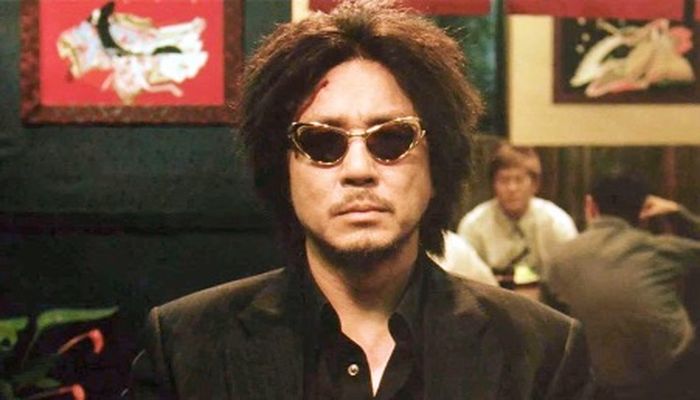Antiheroes and the ‘American’ Experience in Jim Jarmusch’s Dead Man
The experiences of the protagonist, his move through purgatory, and his eventual death generate the ideal metaphor for the American experience, argues Ishani Sarkar.
Since the early 1980s, Jim Jarmusch has produced a handful of idiosyncratic films that have established him as one of the most imaginatively allusive directors in the history of American cinema. His Dead Man (1995) has been described as a “psychedelic/neo/revisionist Western”, and has, over the years, gained a cult following who have pondered on its meaning, giving it a rather enduring afterlife. Inspired by unconventional, often Brechtian, Western cinema, the film resists falling into a typical generic formula. In the film, there is no American West; there is only a landscape that America, the usurper, has ‘cleansed’ of its natives, turning it into a capitalist ossuarium. The pre-credit sequence depicts a train journey, moving between passivity and hasty belligerence, that will continue throughout the film.
“His passage is not one of enlightenment or clarity, but depletion, making it the ideal metaphor for the American experience.”
The plot rests on recently-orphaned accountant William Blake (Johnny Depp). His namesake, a poet and revolutionary in the Age of Reason, believed that the energy of creation could only be propelled by conflict. Indeed, in the film, physical acts of violence are symbolic representations of the spiritual resistance to the deadening conformity that Western artists have been forced to blindly accept. However, characteristic of Jarmusch’s ‘white’ heroes, the character of Blake is completely unaware of the poet whose name he carries. He is travelling out West to the remote town of Machine, with the promise of a job at a steelworks run by Dickinson (Robert Mitchum in a cameo). The position has already been filled on arrival, and he eventually kills Dickinson’s son in self-defence after having slept with the man’s former lover, Thel Russell (played by Mili Avital). He has to flee into the wilderness from the lawless land of Machine, fatally wounded. He spends the remainder of the film dying in the company of a renegade, a Native American named Nobody (Gary Farmer), who understands his predicament. From this point onwards, Blake is in purgatory. He begins the experience physically alive, but dead in essence, transforming his journey into something akin to the Divine Comedy. He is forced to surrender to his own destiny: only after crossing over will true vision be possible.
The film’s carefully researched, protean approach to various Native American cultures makes for a sobering contrast to the daunting portrait of white America, which is shown as a primitive, chaotic world of spiteful bounty hunters and blood-spattered grudge-matches. There is none of the romanticising of violence that has become de rigueur in commercial Hollywood ever since the heyday of Arthur Penn and, later, in Tarantino and others. The film rejects Western monotheism and presents a spiritual resistance to conditions that political solutions have not resolved. Blake struggles trying to become “somebody” in a white man’s world. However, it is not too late for him to reject the values of his society just as his namesake had done. For Blake the poet, evil was inherently related to repression, rather than unrestrained passions. Nobody (the character) realizes that for Blake to stop being a spiritually dead man, he would have to face the imminent threat of death. Passivity is not the wisdom that Jarmusch offers.
As for Blake himself, he is neither a hero nor a villain, neither likeable nor unlikeable. There is emotion and feeling, but it is misdirected and poignantly unreachable. Blake is dying a little bit faster than he is living. He’s like a tabula rasa that everyone wants to write all over, and successfully so. Almost midway through the film, we experience a haunting moment that acts as more than merely a metaphor for Blake’s quandary on the brink of death. He sees a dead doe lying on the ground, feels its blood between his fingers, and mingles it with his own. He lies down on the same forest floor, curling up around it. Depp’s tenderly distorted detachment extends this explicit metaphor into something more – an unsightly gesture in the hunt for meaning.
Jarmusch chose William Blake over any other poet deliberately. He has laden the entire storyline with incredible dualities and the Hegelian concepts of thesis, antithesis and synthesis, which heavily influenced the Blakean dialectic. Nobody (the character) is portrayed as thesis, Cole (a bounty hunter) as antithesis, and their eventual deaths synthesise the two. Blake’s soul is finally free, and his journey through purgatory is over. His passage is not one of enlightenment or clarity, but depletion, making it the ideal metaphor for the American experience.
 News / Judge Business School advisor resigns over Epstein and Andrew links18 February 2026
News / Judge Business School advisor resigns over Epstein and Andrew links18 February 2026 News / Hundreds of Cambridge academics demand vote on fate of vet course20 February 2026
News / Hundreds of Cambridge academics demand vote on fate of vet course20 February 2026 News / Petition demands University reverse decision on vegan menu20 February 2026
News / Petition demands University reverse decision on vegan menu20 February 2026 News / CUCA members attend Reform rally in London20 February 2026
News / CUCA members attend Reform rally in London20 February 2026 News / Gov grants £36m to Cambridge supercomputer17 February 2026
News / Gov grants £36m to Cambridge supercomputer17 February 2026










